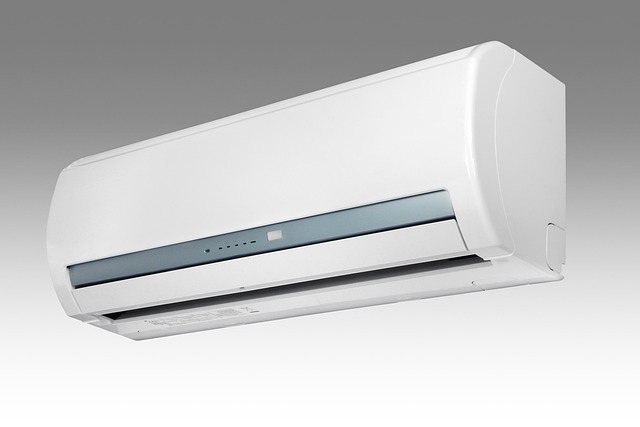Careers in HVAC: Discover Opportunities in Your Area
Explore the world of HVAC careers in your area. Learn about the day-to-day responsibilities of delivery drivers and technicians, the skills and training needed, and the steps to get started safely. Discover how HVAC professionals contribute to homes and businesses, and find out what a typical workday looks like.

The heating, ventilation, and air conditioning (HVAC) industry offers stable career paths with opportunities for growth and specialization. With residential, commercial, and industrial systems requiring installation, maintenance, and repair, HVAC technicians provide essential services that keep our indoor environments comfortable and safe. The field combines technical knowledge, problem-solving skills, and hands-on work—making it appealing for those who enjoy practical applications of mechanical and electrical concepts.
What Do HVAC Delivery Drivers Do Daily?
While technicians handle installations and repairs, HVAC delivery drivers play a crucial role in the industry’s supply chain. These professionals transport essential equipment, parts, and supplies between warehouses, suppliers, and job sites. A typical day for an HVAC delivery driver involves loading and unloading heavy equipment such as air conditioning units, furnaces, and ductwork materials. They must carefully secure these items to prevent damage during transport.
Delivery drivers also maintain detailed records of inventory, deliveries, and returns. They often serve as the company’s face when interacting with customers and contractors at delivery sites. Many drivers assist with basic installations by bringing equipment to specific locations within buildings. Knowledge of HVAC components helps drivers verify orders and ensure technicians receive the correct parts, making them valuable team members who keep projects running smoothly.
What Safety Protocols and Professional Standards Exist in HVAC?
Safety is paramount in the HVAC industry due to the various hazards professionals encounter. Technicians and other workers must adhere to strict protocols regarding electrical safety, as they frequently work with high-voltage systems. Proper lockout/tagout procedures prevent accidental energization of equipment during maintenance. Refrigerant handling requires specific certification under EPA Section 608 regulations to prevent harmful environmental impacts and personal injury.
Professional standards in the industry are maintained through various certifications. Organizations like NATE (North American Technician Excellence) provide respected credentials that verify competency in different HVAC specializations. Many states require licensing for HVAC contractors, with requirements typically including a combination of education, experience, and examination. Companies often implement additional safety programs covering fall protection, confined space entry, and proper lifting techniques to prevent workplace injuries.
What Training Programs and Skill Development Options Are Available?
HVAC training comes in several formats to accommodate different learning preferences and career goals. Technical schools and community colleges offer structured programs ranging from six-month certificates to two-year associate degrees. These programs combine classroom instruction with hands-on laboratory work covering electrical theory, refrigeration principles, and system design.
Apprenticeships provide another valuable pathway, allowing students to earn while they learn under experienced mentors. These programs typically last 3-5 years and include both on-the-job training and related classroom instruction. Online courses have also emerged as flexible options for theoretical knowledge, though practical skills still require hands-on practice.
Continuing education remains important throughout an HVAC professional’s career as technology evolves. Manufacturers often provide specialized training on their equipment, while industry associations offer workshops on emerging technologies like smart HVAC systems and sustainable practices. Specialized certifications in areas like commercial refrigeration, energy auditing, or system design can open doors to advanced career opportunities and higher earning potential.
What Types of Local HVAC Companies Exist and What Services Do They Provide?
The HVAC industry encompasses various company types serving different market segments. Residential service companies focus on home comfort systems, handling installations, seasonal maintenance, and emergency repairs for homeowners. Commercial HVAC firms specialize in larger systems for office buildings, retail spaces, and institutions, often providing ongoing service contracts and building automation expertise.
Industrial HVAC companies work with specialized systems for manufacturing facilities, data centers, and other complex environments where precise climate control is critical. Some companies focus exclusively on new construction, working with builders and contractors to install systems in development projects. Others specialize in retrofit work, helping building owners upgrade to more efficient equipment.
Many local HVAC businesses offer additional services beyond traditional heating and cooling, including indoor air quality assessments, duct cleaning, energy audits, and smart home integration. Some have expanded into related fields like plumbing or electrical services to provide comprehensive building maintenance solutions. When researching local companies, look for those with strong reputations, proper licensing, and technicians with relevant certifications for your area’s specific climate challenges.
How Can You Start a Career in HVAC Safely and Effectively?
Beginning an HVAC career requires careful planning and preparation. Start by researching educational requirements in your state, as licensing requirements vary significantly. Most successful candidates complete either formal education through a technical school or community college or secure an apprenticeship position. Entry-level positions often begin with helper or assistant roles, allowing newcomers to learn fundamentals while supporting experienced technicians.
Essential tools for new HVAC professionals include personal protective equipment like gloves, safety glasses, and proper footwear. Basic hand tools and digital multimeters are typically required purchases, while employers often provide specialized equipment. Physical fitness matters in this field, as technicians frequently lift heavy components and work in challenging positions.
Networking plays an important role in career advancement. Joining industry associations like ACCA (Air Conditioning Contractors of America) provides access to training resources, industry updates, and potential job connections. Creating relationships with suppliers, contractors, and other professionals can lead to opportunities as your career develops.
HVAC Training Program Comparison
| Program Type | Duration | Cost Estimation | Key Benefits |
|---|---|---|---|
| Technical School Certificate | 6-12 months | $1,200-$15,000 | Focused curriculum, quick entry to workforce |
| Community College Associate Degree | 2 years | $6,000-$30,000 | Broader education, better advancement potential |
| Apprenticeship | 3-5 years | Paid while learning | Hands-on experience, industry connections |
| Manufacturer Training | Varies | $300-$1,000 per course | Equipment-specific expertise, professional network |
| Online Certification Prep | 3-6 months | $500-$3,000 | Flexible scheduling, self-paced learning |
Prices, rates, or cost estimates mentioned in this article are based on the latest available information but may change over time. Independent research is advised before making financial decisions.
The HVAC industry continues to evolve with technological advances and increasing focus on energy efficiency. By understanding the various career paths, training options, and local opportunities available, you can make informed decisions about entering this essential trade. Whether you’re drawn to the technical aspects of system design, enjoy the problem-solving nature of service work, or prefer the logistics of supply chain operations, the HVAC field offers diverse roles to match different skills and interests. With proper training and commitment to safety standards, you can build a rewarding career that provides stability and growth potential in your local area.




